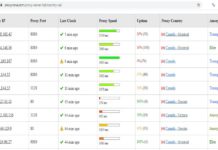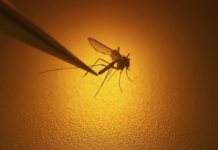The early symptoms of colorectal cancer are often vague and subtle, which is why detecting the early signs is crucial, as early diagnosis often means more successful treatment.
When colorectal cancer first develops and is still small, it often doesn’t cause any symptoms. The symptoms can also be subtle and may not necessarily make the patient feel uncomfortable.
As the tumor grows, the symptoms and signs can vary depending on the location of the tumor.
Here are the 5 most common initial symptoms of colorectal cancer, as listed by Patient.info
1. Bleeding from the tumor
Blood may be seen mixed with stool. Sometimes the blood can make the stool turn black.
Bleeding is usually not severe and in many cases, it goes unnoticed, as it is just a small amount mixed with stool.
However, small amounts of frequent bleeding can lead to anemia, making the patient feel tired and pale, according to Express.
2. Increased mucus in the stool
The Mayo Clinic advises that if there is a little mucus in the stool, it’s usually not a cause for concern. Stool normally contains a small amount of mucus – which helps keep the lining of the colon moist and lubricated.
Patient.info advises: “See a doctor if you notice an increase in mucus in the stool”.
3. Changes in bowel habits
This could mean more frequent or less frequent bowel movements than usual, diarrhea or constipation.
4. Feeling “not quite finished” after a bowel movement
This is quite common if the tumor is located in the rectum, according to The Royal Marsden NHS Foundation Trust, as reported by Express.
5. Abdominal pain

Abdominal pain is also the most common initial symptom Photo: Shutterstock |
The UK National Health Service states that persistent lower abdominal pain, bloating, or discomfort can be a sign of the disease.
As the tumor develops in the colon or rectum, the symptoms can become more severe.
According to Patient.info, the symptoms are similar to the above, but more severe, including:
• In general, feeling unwell, tired, or experiencing weight loss.
• If the cancer is large enough, it can cause a blockage of the colon. This can cause severe abdominal pain and vomiting.
• Sometimes cancer creates a hole in the colon or rectal wall, causing feces to leak into the abdomen, resulting in severe pain.
It is important to note that these symptoms are not always related to colorectal cancer.
Bloody diarrhea with mucus may indicate inflammatory bowel disease.
However, if you experience any of the above symptoms, regardless of the cause, it is advised to seek medical attention immediately.
The UK Cancer Research UK advises if you are concerned about the symptoms, don’t hesitate. These symptoms may not be due to cancer. But if they are, the chances of successful treatment are higher. It won’t be a waste of time.
What increases the risk of colorectal cancer?
Diet is one of the risk factors for developing colorectal cancer.
Several studies have shown that eating a lot of red and processed meat can increase the risk of the disease, so it is advisable to replace them with chicken or fish.
You can also try eating beans as a replacement for meat.
Eating a high-fiber diet also reduces the risk of colorectal cancer, according to Express.
































